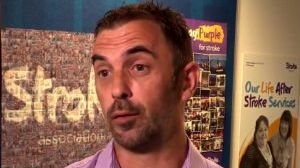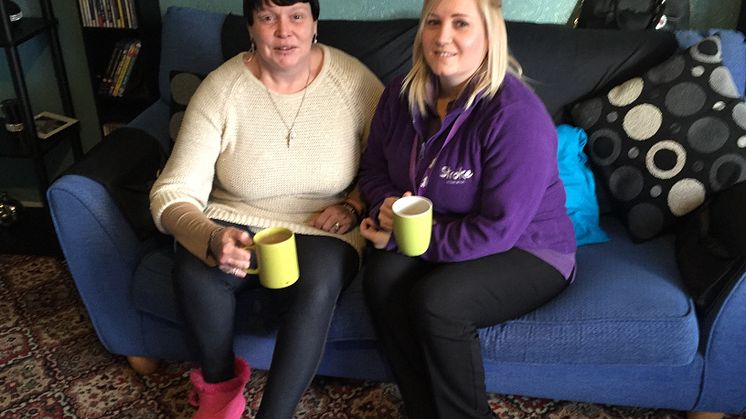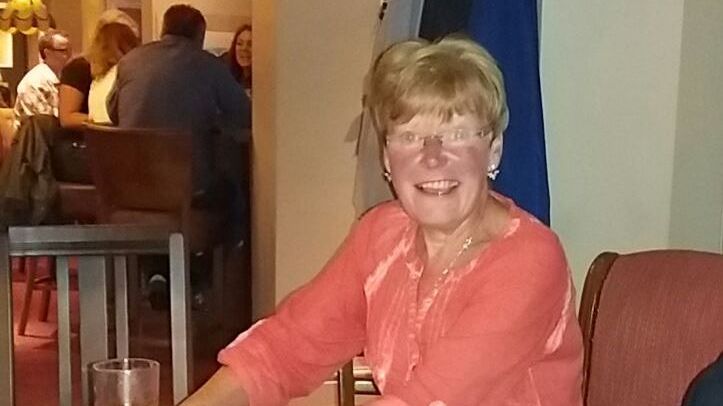
Press release -
Stockport carer backs Stroke Association’s FAST message
Ben Wright, 41, from Stockportis urging people to be aware of the warning signs of stroke, and share the FAST message to help save more lives.
Ben became a carer when his wife Debbie had a stroke four years ago. On the day of Debbie’s stroke, Ben noticed she didn’t look right, and suggested she rest up in bed. When she woke a few hours later, Debbie knew something was seriously wrong, as she couldn’t feel her arm, and had pins and needles in her leg.
Ben said: “Debbie thought she was having a stroke but I told her she’d been lying too long on her side and it was just pins and needles. I even jokingly said she’d been watching too much television when she said she recognised the FAST signs. We actually got into a bit of an argument about it.”
However, Debbie called an ambulance, and when they arrived, the paramedics told her she was having a suspected mini-stroke. While Ben was with Debbie at hospital in Salford waiting for treatment, he watched her have a stroke. He said: “I watched my wife gradually loose her ability to move her arms and legs, and saw her blood pressure shoot up. It was terrifying.”
Debbie’s stroke left her unable to move her arm, she was unsteady on her feet, and she also developed the condition epilepsy as a result. Her recovery has been slow, which has been frustrating for them both. Debbie received just six weeks of physiotherapy, and was told that was all the support she was entitled to. She became withdrawn and depressed as a result, and was very reluctant to leave the house as she thought people were laughing at her.
Ben had initially tried to hold down a full-time job as well as care for Debbie, but he was forced to give this up when he reached the point of exhaustion.
Ben said: “Giving up work meant that I had fewer demands on my time, but it also brought a new form of stress as I had to cope with a significantly reduced income. It’s been very hard to manage the benefits system, and I even suffered from depression as a result of this.
“Finding the Stroke Association and getting support from the charity has been a lifeline for myself and Debbie. Debbie is much happier now she can talk to other people about life after stroke, and I’m really keen to spread the word about the charity’s support so that no-one else in my position is left struggling alone.”
“People need to understand that not only the life of the stroke survivor is affected by stroke, but also that the life of the spouse and family can change overnight.”
The Stroke Association is raising awareness of the signs of stroke, calling on people to learn the symptoms, and call 999 as soon as they spot them.
The FAST test helps people recognise the most common symptoms of a stroke and the right action to take:
FACE: Can the person smile? Has their mouth or eye drooped?
ARMS: Can the person raise both arms?
SPEECH: Can the person speak clearly and understand what you say?
TIME to call 999
Chris Larkin, Regional Director at the Stroke Association, said: “Stroke can happen to anyone at any age, at any time, and when it strikes, every second counts.
“A stroke is a medical emergency, so recognising the signs and calling 999 for an ambulance is crucial. The quicker a person arrives at a specialist stroke unit, the quicker they will receive appropriate treatment. That’s why we’re calling on people in the North West to learn the FAST test and share it with their friends and family. Knowing how to spot the warning signs of a stroke could save a life.”
To find out more about the FAST test, and the Stroke Association’s work to raise awareness of the warning signs of stroke, visit www.stroke.org.uk/FAST.
Topics




